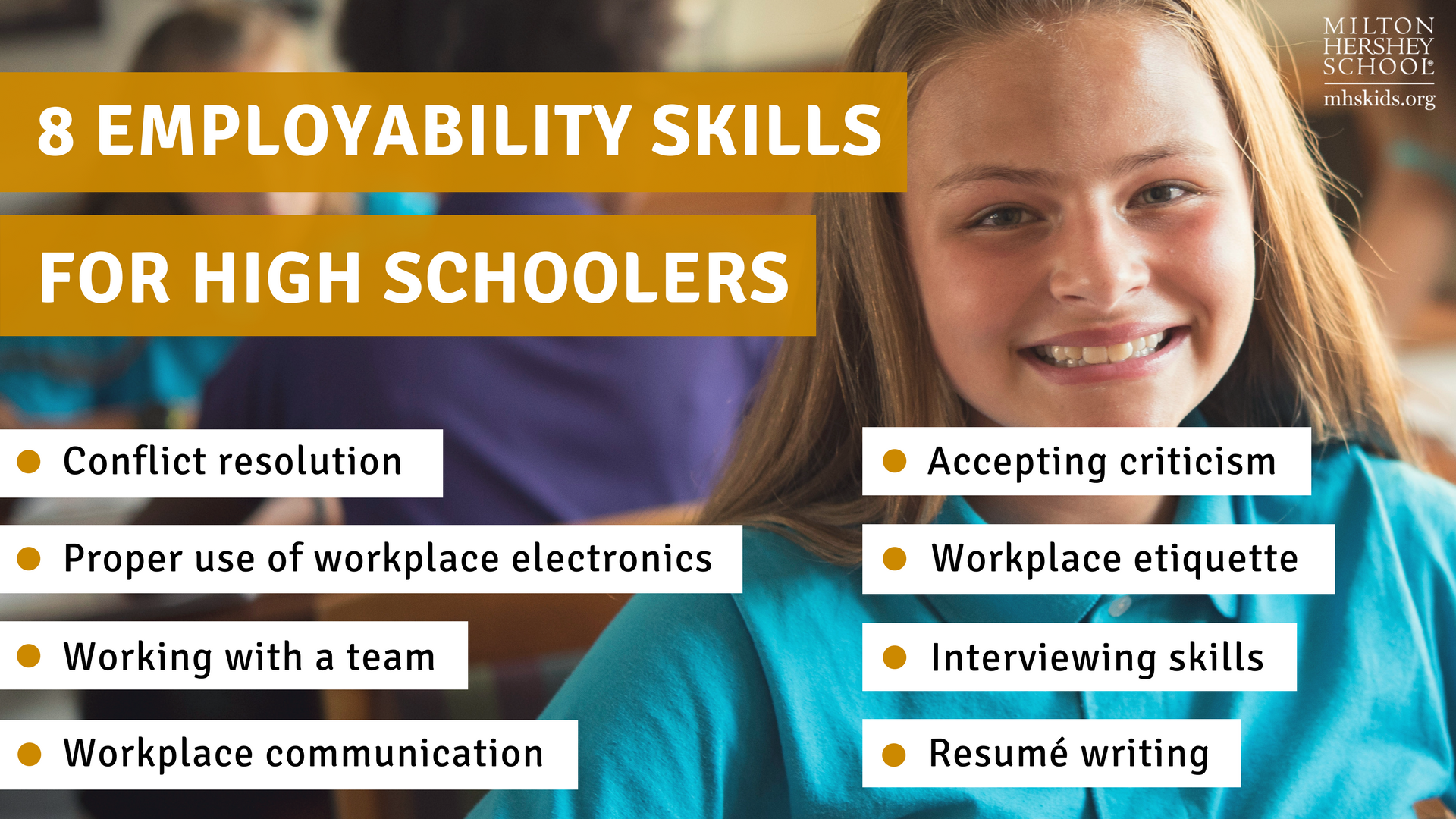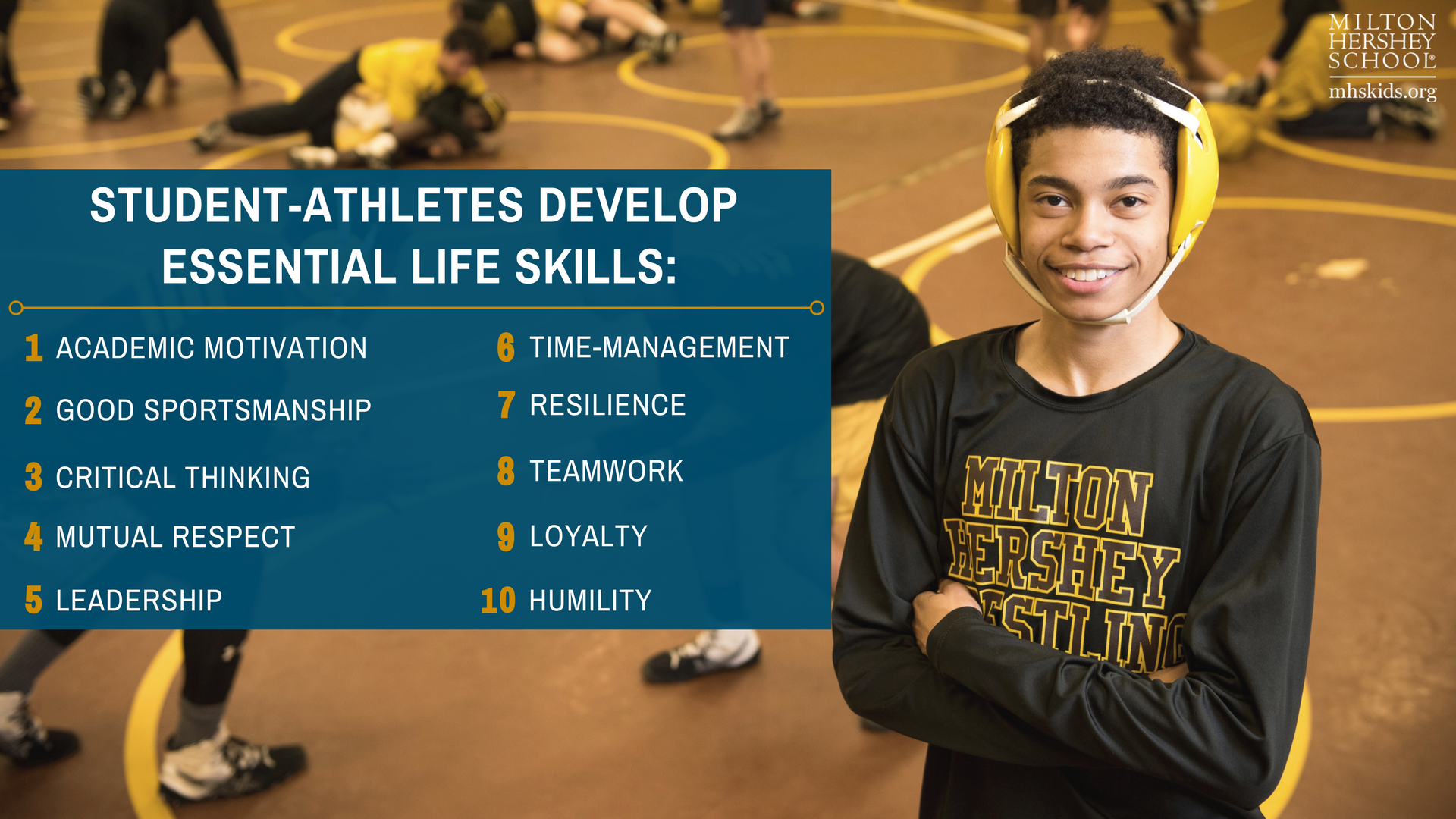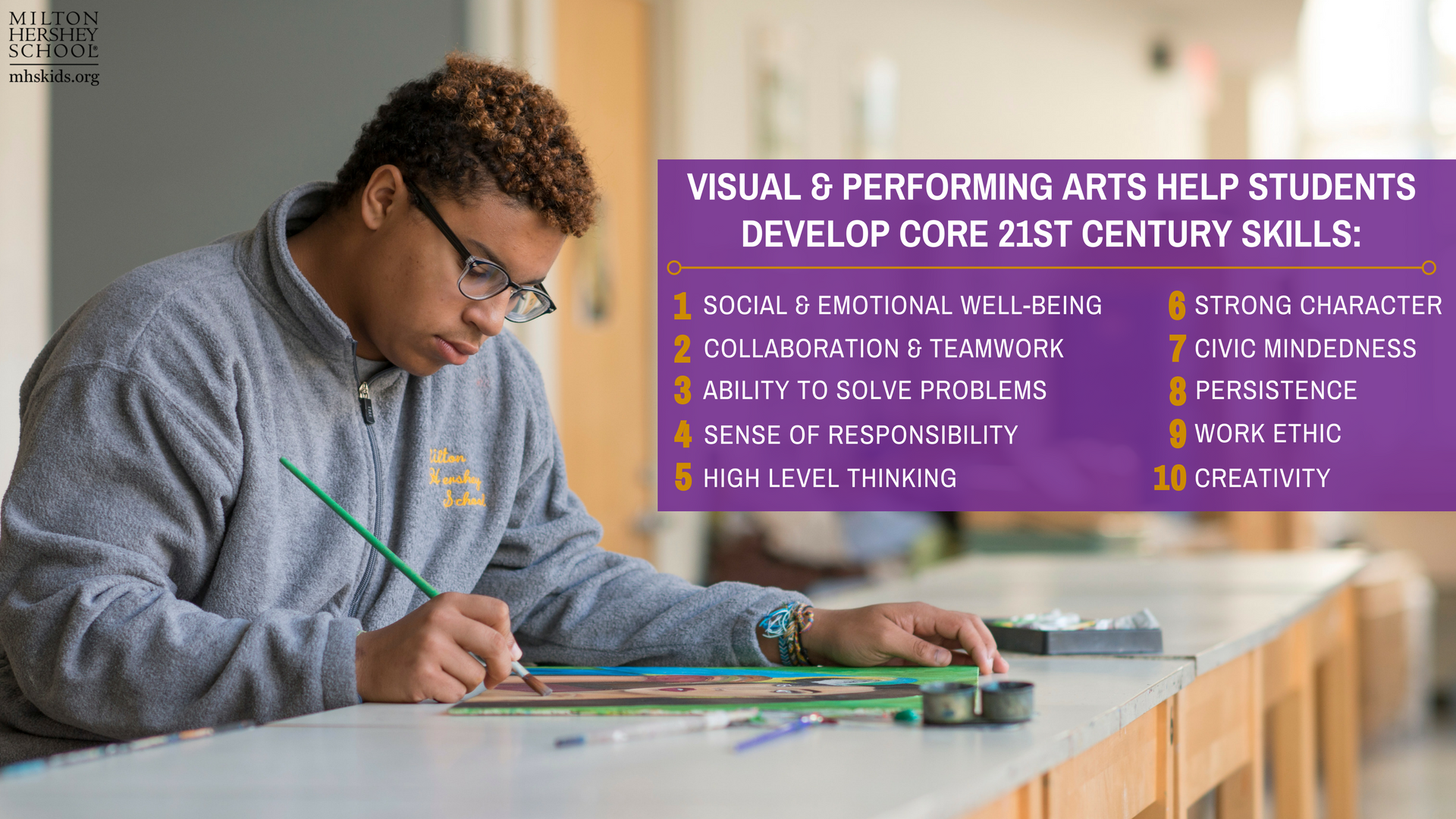How to Build 21st Century Skills Through Academics
Preparing students for the 21st-century world is an important part of academic programming. By developing skills like collaboration, problem-solving, and mutual respect for others, students are more likely to succeed in the modern workforce. While technical skills and subject-specific knowledge are important to employers, employability skills are essential to students’ professional development.
To prepare high school students to succeed in the workforce after graduation, Milton Hershey School incorporates foundational employability skills into our Career and Technical Education curriculum.

Download our skills list and lesson ideas. Read our blog to find more benefits of employability skill-building!
Strategies for Developing 21st Century Skills in Students
Equipping students with the skills they need to thrive in the 21st century is essential. One effective approach to fostering these skills is through extra-curricular activities and project-based learning. This allows students to engage in real-world problems and encourages critical thinking, creativity, and problem-solving. By challenging themselves and working with others, students can hone their ability to think critically and work collaboratively.
Collaboration and teamwork are vital components of success in the 21st century. By fostering an environment where students can work together, schools can help them learn how to communicate effectively, resolve conflicts, and appreciate diverse perspectives. These skills are not only important in academic settings but are also highly valued in the workforce, where teamwork often drives innovation and success. Encouraging group projects and peer-to-peer learning experiences can significantly enhance these essential collaboration skills.
Athletics
Athletic programming teaches students to communicate with others, create goals, and stay active. These life skills have a significant impact on students’ success after graduation.
Skills students develop through participating in athletics include:
- Academic motivation
- Sportsmanship
- Critical thinking
- Mutual respect
- Leadership
- Time management
- Resilience
- Teamwork
- Loyalty
- Humility
Art, Music, & Performance
By participating in musical ensembles and art classes, students gain important skills such as teamwork and collaboration that are instrumental to their success after graduation.
By participating in visual and performing arts, students develop core 21st century skills such as:
- Social and emotional wellbeing
- Collaboration and teamwork
- Ability to solve problems
- Sense of responsibility
- High level thinking
- Strong character
- Civic mindedness
- Persistence
- Work ethic
- Creativity
Career and Technical Education
Through hands-on learning, industry-recognized certification opportunities, and professional experience in the workplace, Career and Technical Education (CTE) provides students with technical skills and broad, 21st-century skills. Milton Hershey School’s CTE program and its 12 career pathways prepare students for college or career with state- and nationally-recognized certifications.
Our 12 CTE pathways include:
- Agriculture & Natural Resources
- Automotive Technology
- Business/Financial Management & Accounting
- Computer Science & Innovation
- Construction/Carpentry
- Culinary Arts/Restaurant Management Services
- Education & Human Services
- Electronic Media & Journalism
- Engineering & Design
- Graphic Communication Technologies
- Health Science
- Law, Public Safety & Security
Assessing 21st Century Skills in Students
Assessing 21st century skills in students requires effective methods and tools that accurately reflect their abilities in critical thinking, collaboration, and digital literacy. One successful approach is the use of project-based assessments, where students tackle real-world problems, allowing educators to evaluate their application of skills in practical situations. Additionally, digital portfolios can serve as a dynamic assessment tool, showcasing students’ work over time and providing a comprehensive view of their skill development.
Feedback and reflection play crucial roles in the development of these essential skills. Providing timely, constructive feedback enables students to understand their strengths and areas for improvement. Encouraging self-reflection helps students take ownership of their learning journey, fostering a growth mindset that is vital for success in the 21st century. Incorporating peer assessments can also enhance this process, as students learn to evaluate their classmates while refining their own skills.
Measuring student growth over time is key to ensuring that they are developing the necessary skills. This can be achieved through formative assessments that track progress and inform instruction. Regular check-ins and skill inventories help educators identify trends in student performance, ensuring that targeted support is provided where needed. By using these assessment strategies, educators can cultivate an environment where students thrive and are well-prepared for future challenges.



